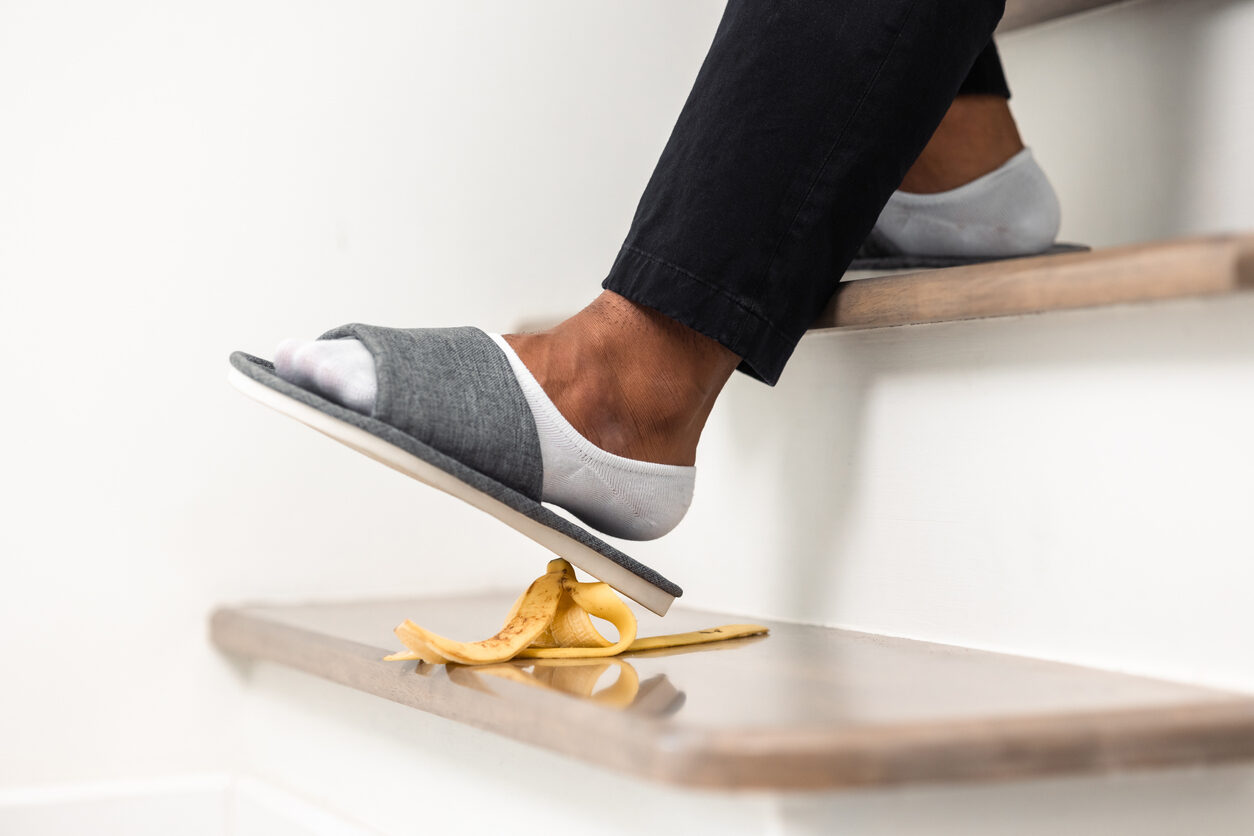
Recently I’ve been talking about the ways in which habits and routines keep clutter under control. I firmly believe this and rely on my habits and routines to help me stay on track. Sadly, though, when routines slip for more than a day or two it’s all too easy to talk yourself into believing that habits and routines aren’t necessary. Why? Because the clutter is sneaky. At first, it doesn’t appear as if the clutter is accumulating beyond what you know you can tackle quickly. It’s easy to ignore. As time goes on and you don’t pick your routines back up something else happens. The clutter gets overwhelming and out of control.
Let’s review how quickly clutter can accumulate which may lead to hoarding behaviors when routines are abandoned.
The Connection Between Habits and Clutter Control
Daily and weekly routines keep clutter under control because every small action helps to keep big piles from accumulating.
Here are a few examples:
- When you intentionally do the dishes after each meal, the sink doesn’t fill up.
- Putting the laundry away when the clothes are dry keeps you in clean clothes
- If you put things away shortly after you come home, they don’t accumulate in piles here and there.
These are small habits to create which help you keep clutter under control.
Life Can Get in the Way: Common Reasons Routines Break Down
Life rarely goes as smoothly as we want it to. Unexpected and some expected life events can throw a monkey wrench into our plans and upset the balance we have come to expect. Things like illness, stress due to a job, moving, having a baby, divorce, and an accident are some external reasons that routines break down.
Even happy events, like marriage or having a baby, can throw your routines off balance. But you and your partner can work together to create new routines to follow.
Routines can also break down when we overcommit our time and become too busy. When that happens, we may avoid doing regular chores, abandoning our habits and routines.
Clutter is Sneaky
I’ve said before that clutter is sneaky. It can seem like a good idea to use the chair in your bedroom to hold a small stack of clothes until that small stack becomes a huge pile and topples over.
The obvious result of deciding to allow clutter to accumulate is that it invades our physical space. When clutter occupies our physical space, it also takes hold in our mind and has an impact on our mental health.
If clutter is everywhere in our homes, it is constantly in our line of sight. Creating a visual reminder that we have let our routines slip. We may worry about where to put some of the things or how to responsibly remove it. This worry causes stress.
The longer we wait to attend to the clutter, the harder it becomes because – clutter is sneaky, and it multiplies.
Be Aware of the Signs of Hoarding Behavior
When routines slip and clutter turns overwhelming piles around the home, it is hard to tackle. This makes it look like it is hoarding. Be aware of the signs of hoarding behaviors. A little knowledge and understanding can help you avoid these behaviors.
Ask yourself these questions:
- Do you have an emotional attachment to items? Why is that? Are these things a place holder and serve to remind you of a person or an event?
- Are you holding onto some things because they were a gift, and you love the person who gave them to you?
- Are you worried about letting things go? Maybe you want to keep them ‘just in case’ but have no concrete plan of when or how you might use them.
- Is there a pile that you avoid touching or are reluctant to move?
- Does the accumulation of clutter prevent you from using some spaces the way they were intended or that you want to use them?
Answering these questions for yourself can help you change these behaviors.
Tips to Get Back on Track
It probably feels overwhelming to tackle the clutter. Admittedly, it will be difficult at first. Here are some tips to follow which will help you get past that overwhelming feeling. No. These tips are not going to make the clutter go away in one easy wave of a magic wand. It will take time and regular work. But take heart. It can be done.
- Pick one small space to start.
- Gather your decluttering supplies: boxes for recycling, donating, trash, and moving to another room.
- Set a timer for a short amount of time.
- Work for that length of time in that spot only.
- If you don’t finish decluttering that space, decide when you will work again.
- Re-establish your daily routines. Think back to your past routines. Do you need to change them?
- Ask for help or accountability if needed.
- Reward yourself for your hard work
Tips to Avoid Future Overwhelm
Once you get back on track you want to avoid this predicament in the future. You need to understand that everyone (including professional organizers like me) let their routines slip from time to time. One day here and there is fine. It’s when you let more than one or two days in a row go by without following your routine that clutter has a chance to get sneaky and accumulate.
Here are some tips to avoid future overwhelm:
- Schedule regular daily resets of high traffic rooms/areas in your home.
- Make conscious decisions about what you bring into your home.
- Create a habit of decluttering a little bit at a time.
Conclusion
Habits and routines work for you to help you maintain the organization in your home. If they are hard to follow or you are often letting the routines slip, think about what it is you don’t like about them. Then tweak the routines so they are easier for you to follow regularly.
Give yourself grace and allow yourself the time to mindfully create habits and routines that work with the way you want to live in your home, so you are in control and clutter is pushed to the curb.
Reach out to me to schedule a free 30-minute phone call if you would like to know more about creating routines that you can follow. You can email me at: dnqsolutions@gmail.com
Diane N. Quintana is the owner of DNQ Solutions, LLC. She is an ADHD Organizing Specialist, a Hoarding Specialist, and a Chronic Disorganization Specialist. Diane is also an ICD Master Trainer, Certified Professional Organizer in Chronic Disorganization, Certified Professional Organizer and co-owner of Release Repurpose Reorganize LLC based in Atlanta, Georgia. She specializes in residential and home-office organizing.


I’m a creature of habit, mostly because I know if I skip something more than once, it can run me completely off the rails. I was sick starting late last week, and every one of my habits — sleep hygiene, healthy eating (or eating at all), housework, blogging, getting my 10K steps — all came to a screeching halt. While I”m not worried about developing hoarding behaviors, I am concerned that I’ve made extra work for myself to deal with now that I’m mostly better.
Without my routines to trigger my good-for-me habits, everything starts to fall like a series of dominoes. The harder keeping base with household care is for an individual, the more stressors there will be, and the more difficulty getting back to basics. It’s easy to see how long-term avoidance of routines and habits can lead to a hoarding-adjacent situation, as you explain.
And while I agree with Seana about how evocative the image is, I can’t get it out of my head — to the point of stressing with each foot-fall! Eek!
It’s fascinating how routines and habits can be established and then so easily disrupted. I see this not just around clutter challenges but also for other habits.
For example, I like to do my face-washing/moisturizing routine at the end of the day when I get into my PJs. It’s a natural time of day to do it as I’m switching my clothes. And that activity of changing my clothing cues me to wash my face. However, for various reasons, if I ‘skip’ the routine at that time, it’s less likely I’ll do it later. And just like that, my routine is disrupted. It’s simple enough to reset, which is true for other habits. We’re good with doing them until we’re not.
Giving yourself the grace to reset and begin again is vital. No shame. Just reset.
I like the example you share, Linda. It’s nice to know how easily routines can slip and then be resumed.
All very good tips. I think that when working in an overly cluttered home it is important to organize and declutter one small space at a time. Then after that space is organized, have a daily check to make sure everything is still in order and no clutter is creeping back in.
That’s great advice, Jonda. Keep revisiting the space that is organized while moving on to create order in another area.
I agree, Diane. Clutter does multiple. I like to tell people that small successes are great; coming home and putting those items away works to keep your home clear of clutter.
Absolutely, Sabrina!
This is great – The longer we wait to attend to the clutter, the harder it becomes because – clutter is sneaky, and it multiplies. Love this because its so true. A great article
Thank you, Kim.
Habits and routines can be difficult to maintain during times of upheaval, but they can also be sort of supporting architecture to keep you from falling apart. I completely agree that times of transition are such a trial. It’s very hard to figure out systems during times of significant change. It takes effort and intentionality. I love your ideas, and even just the concept of focusing on these to help make life easier, not harder.
Great image, by the way! It really helped me understand right away what this post was about. :)
So happy to know you liked my image, Seana!